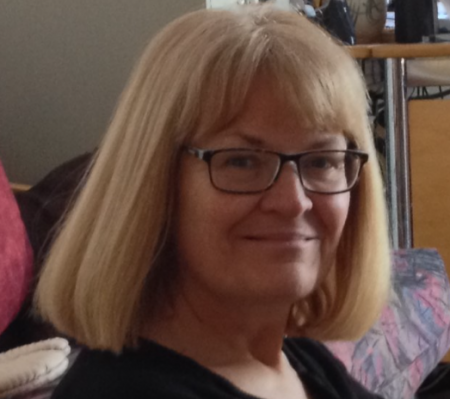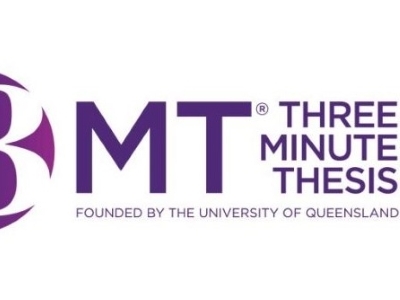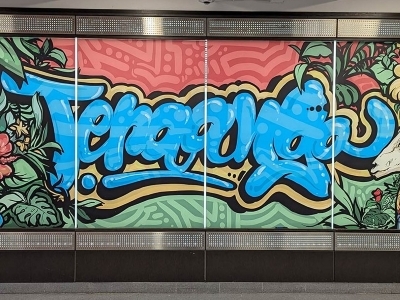“As there are increasing numbers of autistic students now attending university, it is incumbent on the academy to understand their experiences and to work with the students to maximize their success.”
-Jacquie Ballantine
 Jacquie Ballantine, a PhD candidate from the School of Linguistics and Language Studies, is focusing her research on how autistic students experience being, learning and communicating at university.
Jacquie Ballantine, a PhD candidate from the School of Linguistics and Language Studies, is focusing her research on how autistic students experience being, learning and communicating at university.
“I am particularly interested in how autistic and non-autistic people communicate together and recognize that any challenges that exist in effectively communicating between these groups go in both directions and may impact the students’ chances of success at university,” said Ballantine.
In 2009, Ballantine, a retired speech-language clinician, started lecturing at Carleton in the School of Linguistics and Language Studies teaching courses about communication disabilities.
“As a speech language clinician, I started to meet some of the very autistic preschoolers whom I had worked with in my clinical practice in the early nineties, and who were now grown up and coming to university,” explained Ballantine. “All those years ago, I had often wanted to be able to ask them, as preschoolers, about their experiences and what helped them and what did not, but at the time, many did not have strong enough communication skills to be able to share this information. As I later met them as adults, I had the perfect opportunity to learn from them about their experiences of life, learning and communicating. In this way, we could all share our different understandings of the world and benefit from learning about each other’s ways of experiencing life.”
Ballantine hopes that this research will lead to greater awareness of the experiences and needs of autistic students and how professors, teaching assistants, mentors and peers can collaborate better with students to support their participation in university life.
“I also feel that everyone at universities and in the general public, everyone stands to benefit from closer relationships and understanding of autistic experiences and autistic ways of being human,” shared Ballantine. “If the work that we do together with other autistic and non-autistic researchers can contribute to these understandings, I believe equal inclusion and access to education and work opportunities will benefit the whole university and all of the general public.”
Ballantine has been conducting semi-structured interviews with autistic university students and some university instructors.
“In our second study which addresses academic and social experiences reported by autistic university students during the COVID-19 pandemic, we found that just the daily experiences of physically being on campus can be highly taxing and anxiety-inducing for many undergraduate autistic students and that many of them prefer online learning to avoid having to be on campus,” said Ballantine. “In contrast, graduate students (who engage with familiar peers in much smaller classes) still value the personal one-to-one engagement with professors and peers. Regardless, for all autistic students, being in a quiet and controlled physical environment leads to lowered anxiety.”
Ballantine’s research has been funded by the Bombardier SSHRC scholarship.
“It was utterly amazing!” expressed Ballantine. “I had just come home after teaching a course and saw the notice in my email. To be truthful, it was a very freeing experience because I knew I would not have any financial worries going forward in doing this research. I was also excited to be able to apply for the Michael Smith Foreign Study Supplement (which I was later awarded) to travel to Australia to work with and learn from the participatory research team at Macquarie University in Sydney. Unfortunately, owing to the pandemic, I have not yet been able to follow through with this, but it does promise to afford me the opportunity to learn from other professionals in the field.”
Dr. Natasha Artemeva from the School of Linguistics and Language Studies has been supervising Ballantine throughout this research.
“Professor Artemeva and I have worked on several studies together, most of which address different ways of communicating among autistic and non-autistic members in the university community,” shared Ballantine.
In fall of 2019, Ballantine and Artemeva travelled to the SIGET X conference in Cordoba, Argentina to present their research. Subsequently, they published Autistic University Students’ Accounts of Interactions with Nonautistic and Autistic Individuals: A Rhetorical Genre Studies Perspective in the September 2020 edition of Revista da Anpoll.
Says Ballantine: “We fully endorse a community-based participatory approach to our work where the autistic community (including university students) collaborates with us at every stage of the research process. Although we have not yet been able to fully accomplish this in all our studies, we hope to encourage more autistic researchers to join us to achieve this goal.”
Ballantine wants to collaborate with other researchers in the future to establish a participatory research team at Carleton which addresses the most important and relevant issues that concern the autistic community.
“For me, we can only achieve this by adhering to the call of many in disabled communities that research should be conducted only according to their motto of, ‘Nothing about us, without us!’, said Ballantine. “Although this team may address many different fields of research, my particular interest will be to find ways to help both autistic and non-autistic people improve the effectiveness of their communication so that they can create knowledge together (in various contexts, including universities and other workplaces) for the benefit of all.”
–The above story was written by Taia Goguen-Garner.
Wednesday, January 6, 2021 in Grad Student Research, News
Share: Twitter, Facebook



